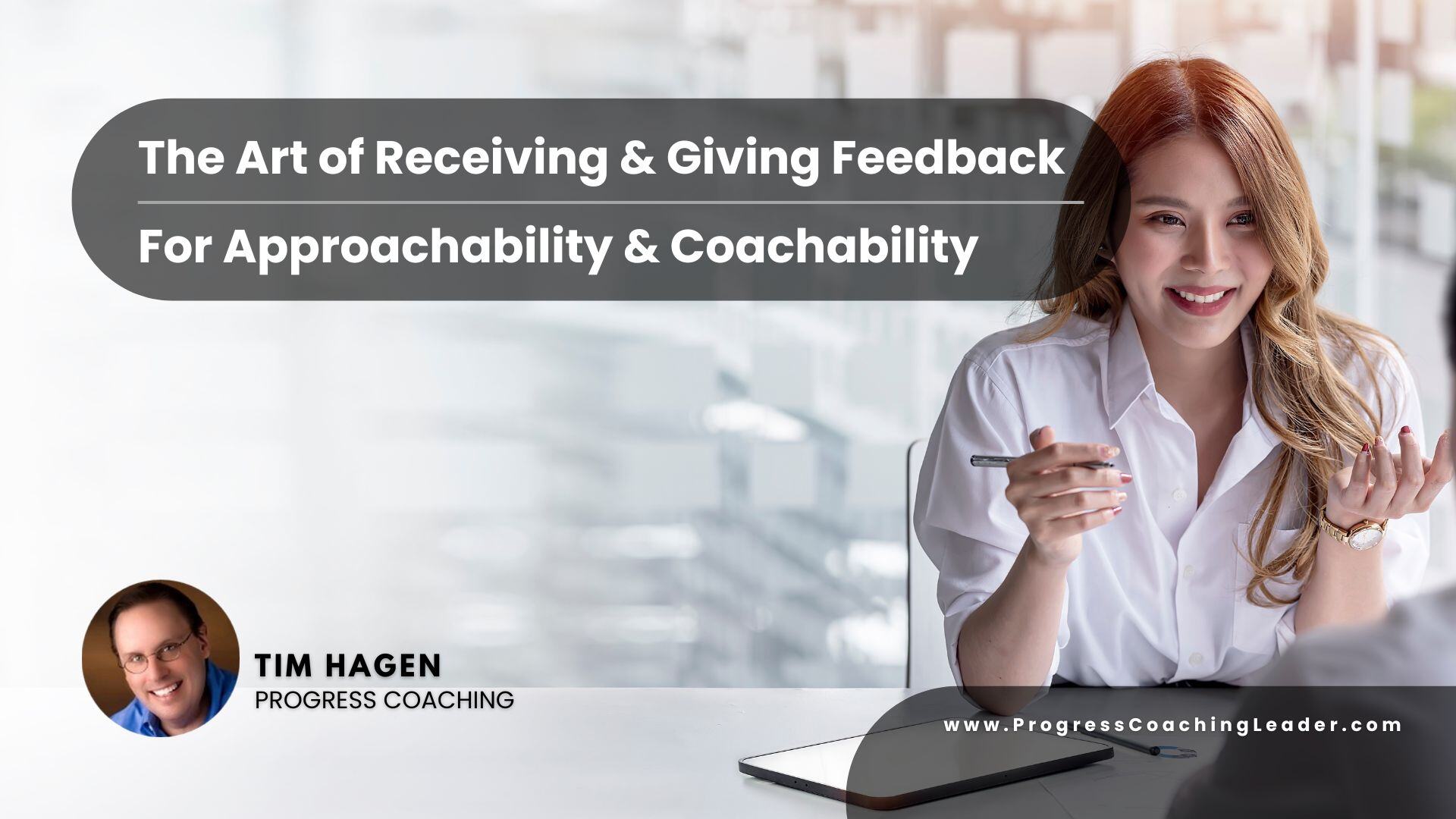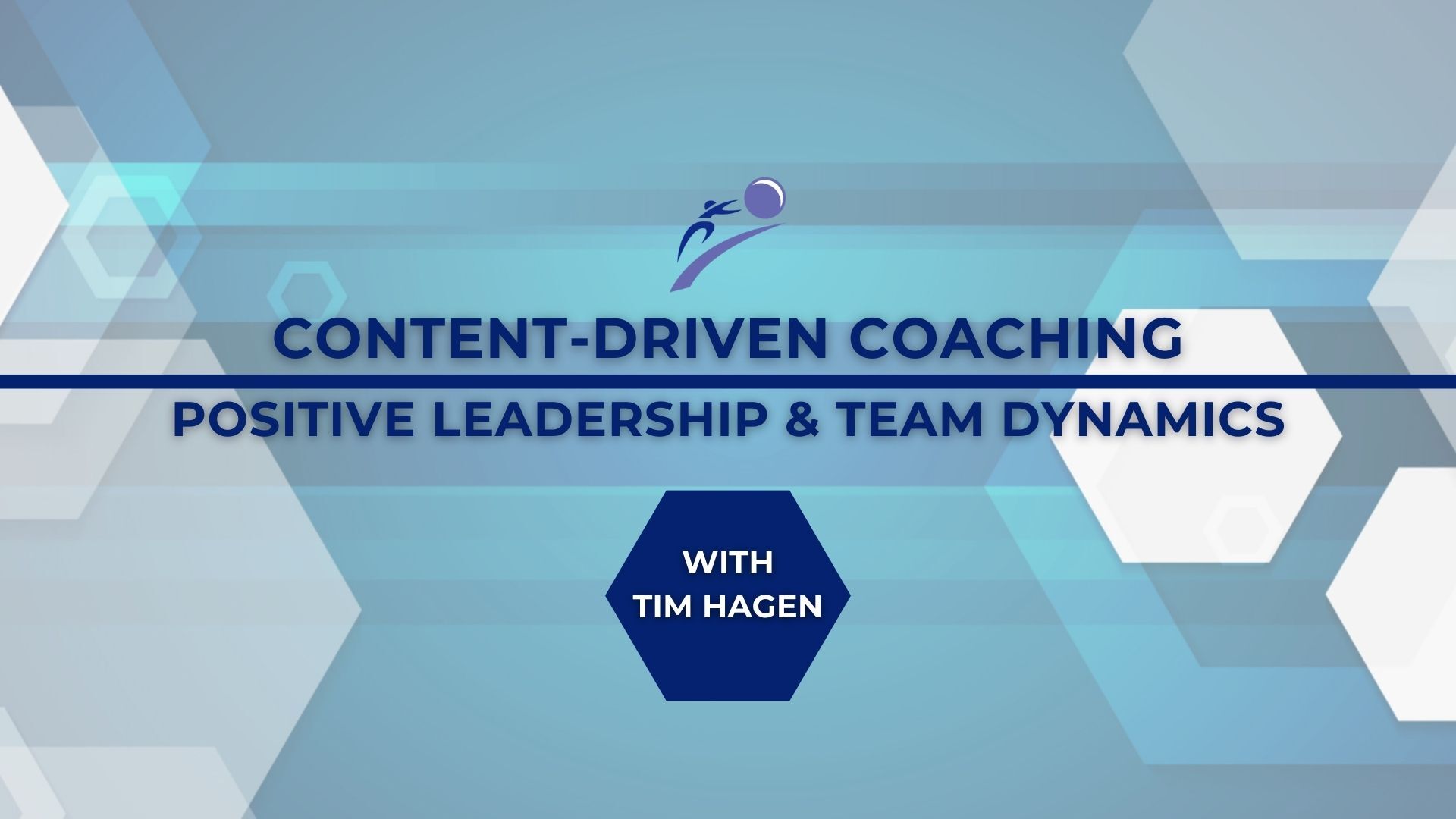The Art of Receiving and Giving Feedback for Approachability & Coachability
What if the key to transforming your leadership skills lies in understanding the delicate balance between intent and perception?
Here we'll unpack the often-overlooked complexities of giving and receiving feedback, revealing why so many leaders find it daunting and how a shift in focus can pave the way for significant personal and professional growth. You'll walk away with actionable insights into how to become more approachable and coachable, creating a more positive and productive environment.
In these compelling real-life examples, including a riveting story about coaching a volleyball team, we illuminate the uncomfortable yet crucial process of self-reflection and adjustment. We also discuss eye-opening statistics on workplace engagement and self-awareness, emphasizing the challenges leaders face when their feedback is consistently met with resistance.
Whether you're a leader tasked with giving feedback or someone striving to grow from it, this one is teeming with valuable lessons and transformative advice.
One of the greatest things we need to understand when we get feedback is the battle in our minds of intent versus perception. The same goes for whenever we receive mentoring, coaching, or insight, and not just with areas we need to improve but also with our strengths. We will always mentally battle intent versus perception.
What we tend to focus on is someone else's intent, "He attacked me, he didn't have his facts straight." That way we never get to this perception where we have to look in the mirror and say, "How am I being perceived by other people?" That's very uncomfortable for many people.
Think about that. Think about a situation recently where if you stepped back from the initial resistance, you might say, "You know what, if I put that into the context of perception, I would be able to look at things I need to navigate, adjust, or tweak to become more approachable and coachable."
I've shared this truth a lot over all these articles and podcast episodes. Do you know what leaders will rarely ever tell you, but most of them feel? They hate giving feedback. Many leaders approach the topic with, "Ugh, I have to give feedback, but it's part of my job, I'm going to do it." And when have people who rebuttal their advice...
Think about these next statistics from the leader's point of view:
- 85% of people significantly lack self-awareness (Insight, Tasha Eurich).
- 71% of people are where neutral or actively disengaged in the workplace. Only 29% are engaged (Gallup).
- 42% of people are currently looking for jobs in Q4 2022 (McKinsey), and the numbers are actually getting worse by recent reports.
These are daunting statistics. So, when a leader has to give someone feedback and they know the person is going to rebuttal them with an excuse or some other explanation and not truly consider the feedback, I promise you leaders won't tell you this. They don't want to give that feedback. It's exhausting.
I've coached boys volleyball for 31 years and I can't think of many kids I've had like this. But I had one in particular who always said, "Yeah, but..." Always "Yeah, but..." on repeat. When he would practice, he only wanted to work on hitting. He didn't want to work on other parts of his game. I ended up playing the other kids in front of him, and his parents became furious because it was personal to them.
I'll never forget one of the family members came up to me and said, "Kids are going to quit if you do this any further."
And I smiled. I replied, "After five years, I've only had one kid quit the team."
They looked at me with their jaws dropped (and this was a family member, not the parents).
"It's tough, right? Your perception is I attacked this player. Did he tell you he didn't want to play defense? He didn't want to block?"
They said no.
"Right. So, your perception was that my intent was never to bench him. My intent was to play him as much as I could because I like him."
It's amazing how much things become clearer when we understand the internal battle we have with perception versus intent.
LEARNING PROJECTS FOR EMBRACING FEEDBACK:
- Next week, come in and share two examples of where you received and accepted feedback in a thoughtful and professional way and the success you experienced because of it.
- Next week, come in and share one example where you received feedback that was more difficult or less easy to accept and how you responded. Write what steps you're going to take to assimilate that feedback effectively and positively.
- Identify any barriers you feel or experience that are keeping you from receiving and accepting feedback positively, and ways to help remove or mitigate them.
- When sitting in meetings over the following month, observe people giving feedback to one another. Write down the kinds of things they say, the kinds of language they used and why you liked or disliked that feedback. Write how it made you feel, and if you'd prefer to receive that kind of feedback in that manner or not. This helps increase your self-awareness of your willingness to receive feedback and become approachable.
Boost your coaching and leadership game with our FREE COURSE to help leaders enhance their coaching abilities.
Lead with Impact: 6 Steps to Building a High-Performance Coaching Culture in Your Organization
This is a 7-day course with video lessons sent to your email throughout the week. You can watch the recorded lessons on your own time at your own pace.
Discover:
-
The best attributes of coaching
-
An efficient framework for coaching
-
The crucial tiers of learning
-
The 3 levels of change
-
The power of questions
-
and more!
Access the free course here: https://upvir.al/156009/lp156009





